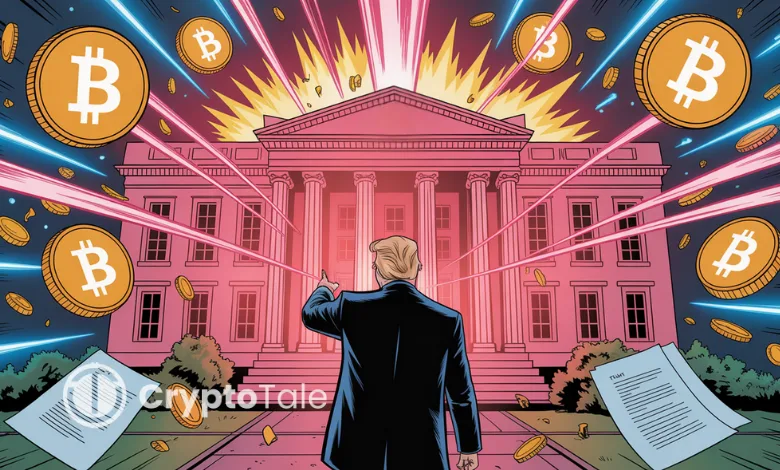Crypto Coalition Urges Trump to Issue Overdue Tax Guidance

- Crypto groups urge Trump to order swift federal action on overdue digital asset tax rules.
- Industry calls for clear IRS guidance on small transactions and staking or mining rewards.
- Coalition urges protections for DeFi developers and relief from uncertain enforcement.
More than 65 cryptocurrency organizations pressed President Donald Trump to order federal agencies to release long-delayed digital asset tax guidance. The groups said the lack of clear rules has slowed industry activity and created uncertainty. They argued that agencies can act without new legislation. They also said the regulatory roadmap already exists and only needs direction from the White House.
The Solana Policy Institute led the effort. It worked with Exodus, Mysten Labs, Uniswap Labs, and several other firms. The coalition sent a detailed letter outlining specific steps that the Treasury Department and the IRS can take. Their recommendations trace back to proposals in the President’s Working Group Report on Digital Assets released in July.
Crypto Groups Seek Clear Tax Rules
The letter urged Trump to direct the IRS to apply de minimis rules to smaller crypto transactions. The groups proposed a $600 threshold. They also asked the IRS to classify staking and mining rewards as self-created property. Under this model, rewards would be taxed only when disposed of and sourced to the taxpayer’s residence.
Members of Congress have pursued similar goals. Sen. Cynthia Lummis introduced legislation to define the tax treatment of digital assets. Her bill aims to end double taxation on mining and staking activities. It also proposes a $300 threshold for tax-exempt transactions. The industry says the gap between legislation and agency action requires executive involvement.
The signatories warned that decentralized finance faces uncertain enforcement. They asked Trump to urge the Securities and Exchange Commission and the Commodity Futures Trading Commission to issue exemptive relief. They want the SEC’s Crypto Task Force to publish interim guidance to protect developers of permissionless, source-available protocols while rulemaking is underway.
They also requested updated instructions from the Financial Crimes Enforcement Network. They want FinCEN to confirm that the Bank Secrecy Act does not apply to non-custodial blockchain software. This request follows the agency’s 2019 position, stating that developers of such software are not considered financial intermediaries.
Crypto Groups Urge DOJ to Drop Charges Against Roman Storm
The letter also focused on the prosecution of Roman Storm, a Tornado Cash developer charged with operating an unlicensed money-transmitting business and other offenses. A jury in August did not reach a verdict on money laundering and sanctions charges. Storm remains free on bail and faces sentencing on December 18.
Storm’s legal team says publishing open-source code is protected by the First Amendment. The groups asked Trump to encourage the Department of Justice to drop the case. They argued that doing so would support the principle that software development is not a criminal act. They also said it would align with prior statements from Justice Department officials who said that writing code is not a crime.
Related: SEC Reveals Token Taxonomy Plan After Government Reopens
The letter referenced Trump’s earlier pardon of Binance founder Changpeng Zhao. Trump later said he did not know Zhao personally. He said he acted on advice that Zhao faced unfair treatment. The industry noted the sequence of events but did not make predictions about future actions.
The coalition said updated federal rules would also allow the IRS to participate in the Crypto-Asset Reporting Framework. This global system allows countries to share information about citizens’ foreign crypto accounts. Participating nations use the shared data to combat tax evasion.
The signatories said the United States risks losing leadership in crypto without rapid regulatory action. They said the requested steps do not require new laws and can be implemented through agency guidance. They also said the actions would strengthen developer protections, define tax treatment, and establish clearer boundaries for decentralized finance.




